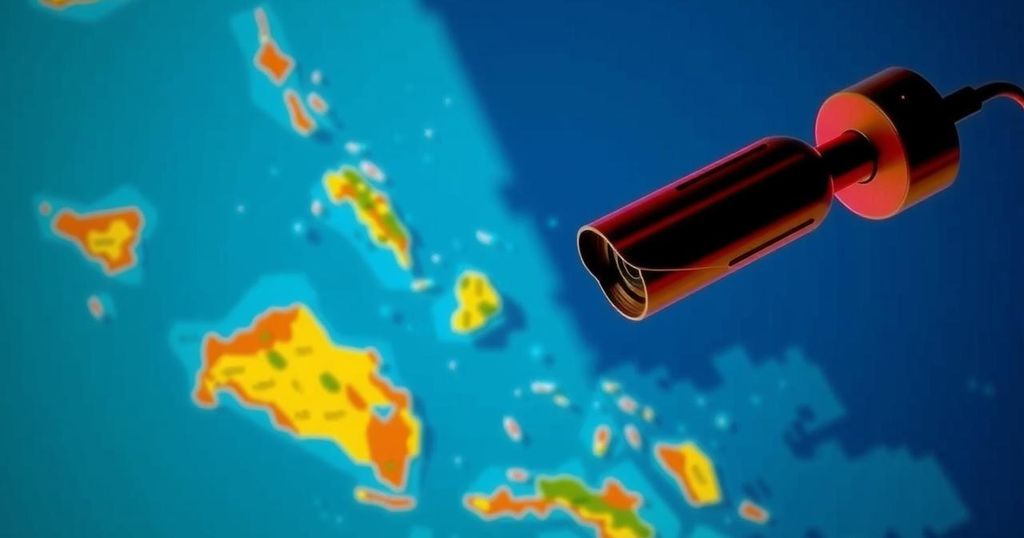Mauritius’ Crucial Election Amid Phone-Tapping Scandal and Geopolitical Changes

Mauritius conducted a parliamentary election amid a phone-tapping scandal, raising concerns over civil liberties and political stability. Prime Minister Pravind Jugnauth faces a tight race against former Prime Minister Navin Ramgoolam. Voter turnout was 70%, with results expected soon. The election follows the transfer of sovereignty of the Chagos Islands from Britain to Mauritius, a move that has significant political implications.
Mauritius held a critical parliamentary election on Sunday, amid a significant phone-tapping scandal that raised concerns over civil liberties in the country. The voting occurred following a historic agreement in which Britain transferred sovereignty of the Chagos Islands to Mauritius. Prime Minister Pravind Jugnauth faced challenges to his re-election prospects as leaked recordings of private conversations involving politicians and journalists surfaced, prompting government attempts to control the narrative through a controversial social media ban. The election’s outcome will shape the composition of the National Assembly, where two main political blocs are contending: Jugnauth’s Militant Socialist Movement and the opposition Alliance of Change, headed by former Prime Minister Navin Ramgoolam. Both factions expressed confidence in their chances, promising solutions to pressing issues such as poverty. As the polls closed, voter turnout reached 70%, and results are anticipated on the following day. Security at polling stations was reinforced by police, with monitoring by regional organizations including the African Union. Ramgoolam warned of potential electoral fraud but noted that the voting process occurred relatively smoothly. Conversely, Jugnauth maintained that voter appreciation for his administration would secure his victory. Political analysts voiced concerns regarding the erosion of stability, governance, and democratic integrity amidst rising corruption and struggles for institutional checks and balances in recent years.
Mauritius, recognized as one of Africa’s most prosperous democracies, has encountered significant political challenges leading up to this election. The recent agreement concerning the Chagos Islands has altered the nation’s geopolitical landscape, heightening political tensions. Long-term leadership by a few prominent families has also created issues regarding corruption and governance, affecting the public’s confidence and necessitating economic diversification to sustain growth beyond established sectors such as tourism and manufacturing. The backdrop of the phone-tapping scandal raises questions regarding the integrity of Mauritius’ democratic processes and civil liberties, culminating in a critical juncture for its political future.
The parliamentary election in Mauritius is a pivotal moment reflecting deeper concerns about governance, civil rights, and political stability. While the election results will reveal the electorate’s mood, they will also shape the future trajectory of Mauritius amid domestic challenges and global strategic interests, particularly following the transfer of the Chagos Islands. As both major political parties promise to address significant socioeconomic issues, the impact of recent scandals on public trust remains a crucial determinant of political dynamics in the nation.
Original Source: www.news-expressky.com







